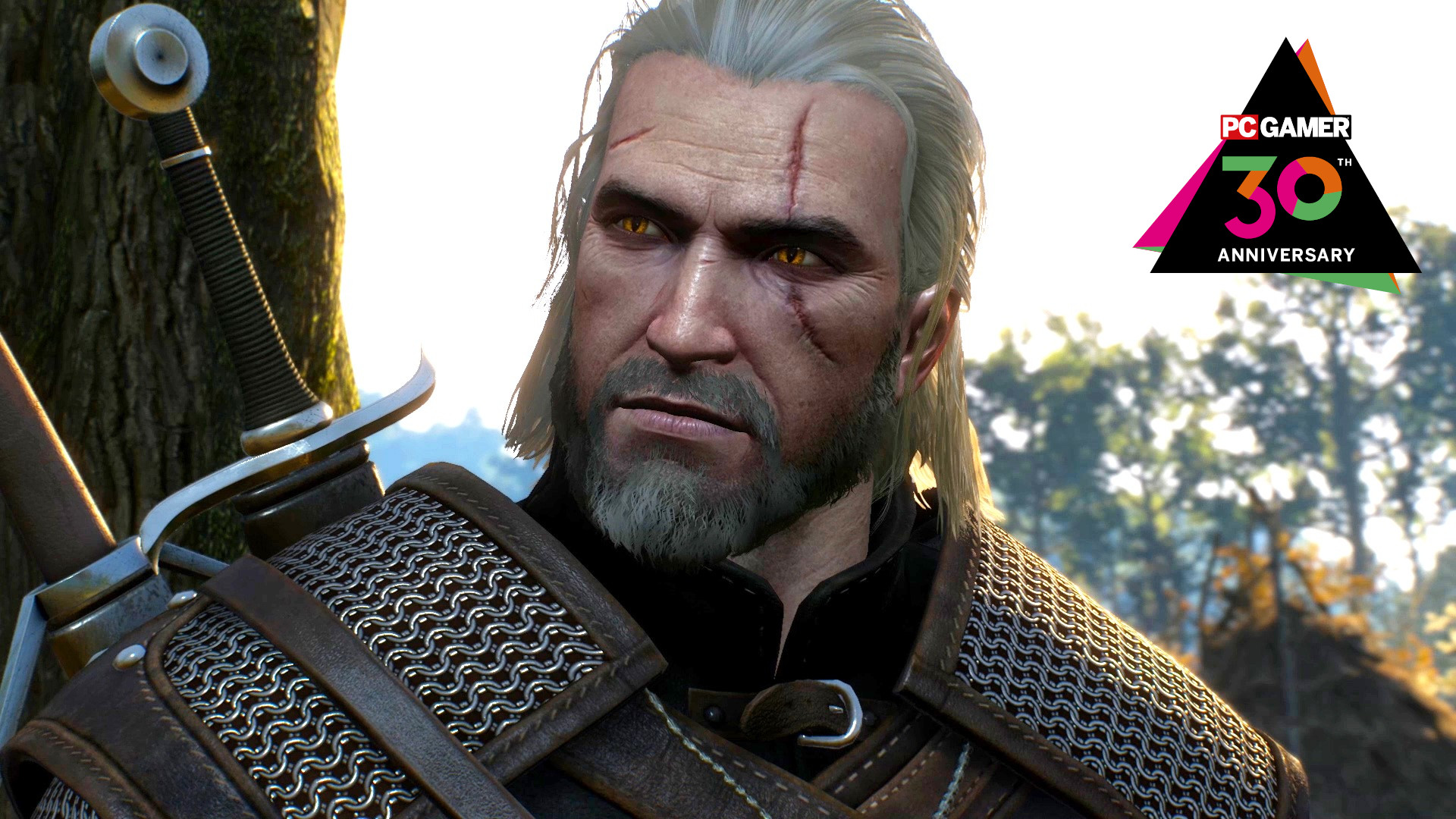

This article first appeared as part of a supplement included with our blowout 30th anniversary issue of PC Gamer magazine, issue 390, in November 2023. Pick it up for a look back at the magazine's own storied history.
For PC Gamer's own 30th anniversary, we're journeying through three decades of PC gaming history, and we've finally arrived in the modern age of PC gaming. From the mid-2000s to now, we've seen some huge shifts in the landscape of the hobby, and some new classic titles ready to stand the test of time for many more decades to come. Let's kick off with just such a one, an RPG near and dear to the hearts of the PCG team...
The Witcher 3: Wild Hunt (May 2015)

Open worlds on PC reached their zenith with CD Projekt's dark fantasy. The scale of this RPG was extraordinary, but what truly defined The Witcher 3 was the texture of its world. Its landscapes weren't just beautiful, they were wild and unkempt and hostile. Its story wasn't just dramatic, it was tender, nuanced, heartwarming and heartbreaking. The quality wasn't limited to the main plot, but virtually every side quest too. It may be a game about a mutant slaying monsters, but The Witcher 3 is one of the most human games ever produced by a big-budget studio.
Steam hardware (November 2015)
Valve first crossed the line from software developer to hardware designer with three devices: the Steam Link, Steam Controller, and Steam Machines. It was Valve's first stab at building a console-like experience around PC gaming, without actually making a console. Unsurprisingly, this half-measured approach didn't catch on, and Steam Machines had all but vanished from Steam by 2018. That said, the Steam Link was a genuinely neat piece of hardware, and Valve's hardware aspirations would see much greater success in the years to come.
PUBG: Battlegrounds (December 2017)
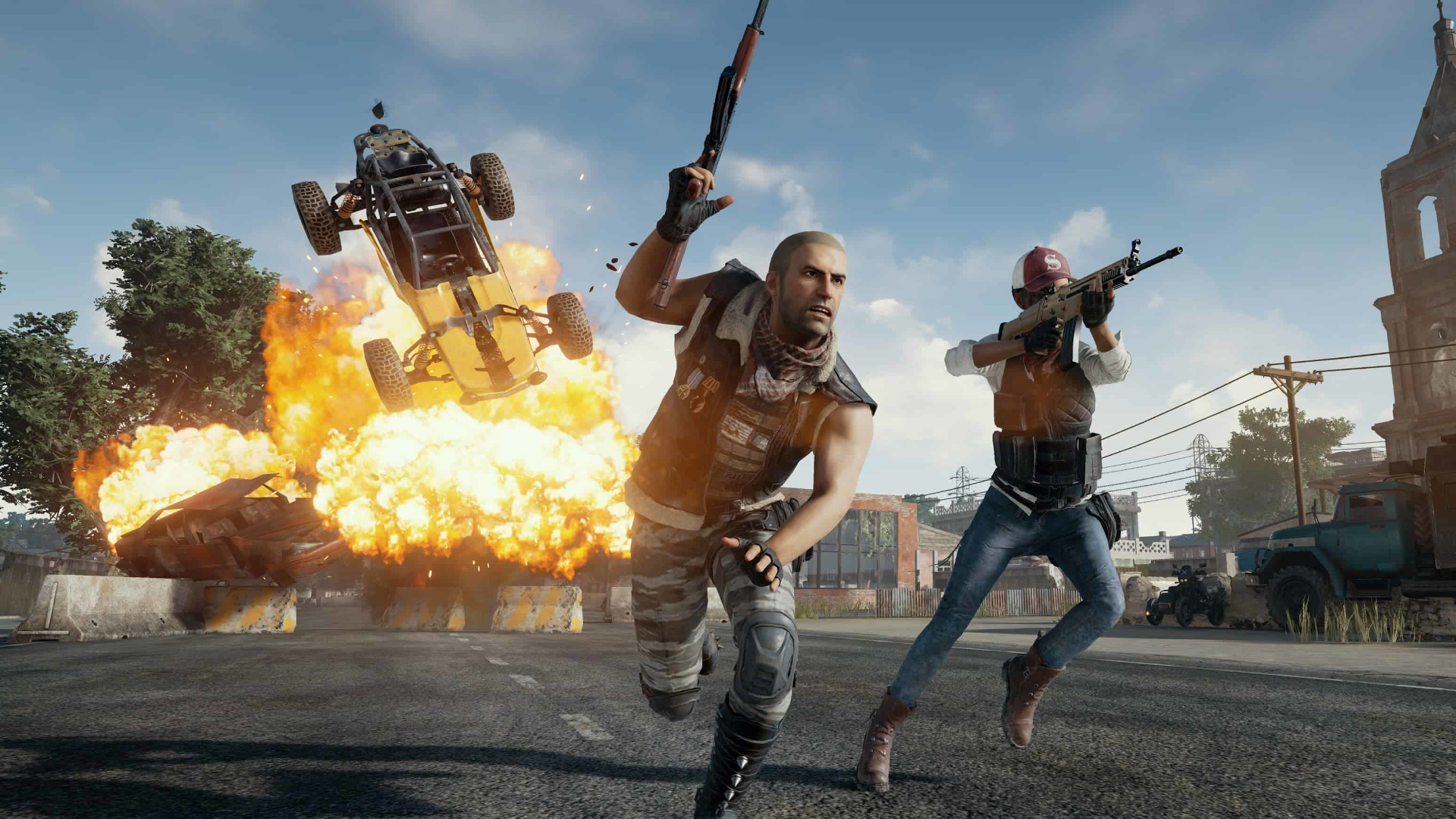
Perhaps the most recent game to cause a paradigm shift in how mainstream titles are designed, PlayerUnknown's Battlegrounds emerged from the inhumane chaos of DayZ, Bohemia Interactive's multiplayer zombie survival mod for ArmA 2. In DayZ's world, survival was the only goal, and in achieving this you could be as cruel and treacherous to other players as you liked.
PUBG basically took this idea and formalised it into a round-based scenario. The same large, post-military world, the same large number of players. But now players had to compete with one another in a gradually shrinking playspace until only one of them was left. And lo! The battle royale genre was born.
Keep up to date with the most important stories and the best deals, as picked by the PC Gamer team.
PUBG's impact was as enormous as it was rapid. In the battle royale formula, Epic saw an opportunity to turn around the ailing fortunes of its Minecraft-inspired survival game Fortnite, creating one of today's biggest blockbusters. Respawn applied its unrivalled FPS talents to the formula, producing arguably the best battle royale game in Apex Legends. Even Activision stood up and took notice, building the hugely successful, if variably good, Call of Duty: Warzone.
The success of battle royale lies in its balance of scale and accessibility. These games have the footprint of an MMO or a shared-world shooter, but don't demand the same commitment. They have events and seasonal changes, but don't require that you follow along with every step. Perhaps that's why battle royale has thrived in recent year, while so many looter-shooters and MMOs have struggled.
Geforce RTX 2080 (September 2018)
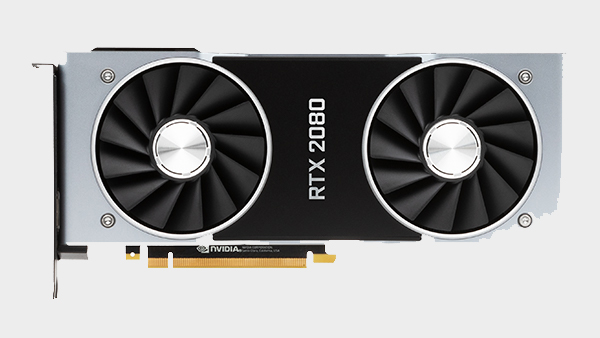
PC gaming has long been at the cutting-edge of graphics technology, but the rate at which visual fidelity increases has been flattening over the last decade. Back in the '90s, just four years took you from the 2.5D hellscape of Doom to the fully 3D, hardwareaccelerated sci-fi nightmare of Quake 2. Then it all went quiet.
Which is why the advent of ray tracing in 2018 felt like such a big deal. Here was a technology that seemed a genuine leap forward: true, pathtraced real-time lighting that accurately simulates how light bounces off surfaces to create shadows, reflections, and refractions. Games had become very good at faking these things, but here was a technology that did it for real.
In practice, the ray-tracing revolution has been more of a spirited argument. The improvements ray tracing brings can often be hard to discern. Moreover, the performance cost for often slight improvements was enormous, and on early RTX cards like the 2080 were often not worth the enhancements they provided.
Modern ray-tracing also raises other questions, such as whether or not an all-purpose lighting solution is always beneficial for how games look. Yes, putting real-time lighting into games like Quake 2 and Minecraft is a cool trick, but it also fundamentally compromises the aesthetic of those games. The recently released Counter-Strike 2 uses old-fashioned baked lighting, and not only does it look fantastic, it looks fantastic in the way a Source engine game should. As is always the case, good technology is nothing without good implementation. That said, when it is used correctly, like in Cyberpunk 2077, ray tracing can be absolutely mindblowing.
Disco Elysium (October 2019)
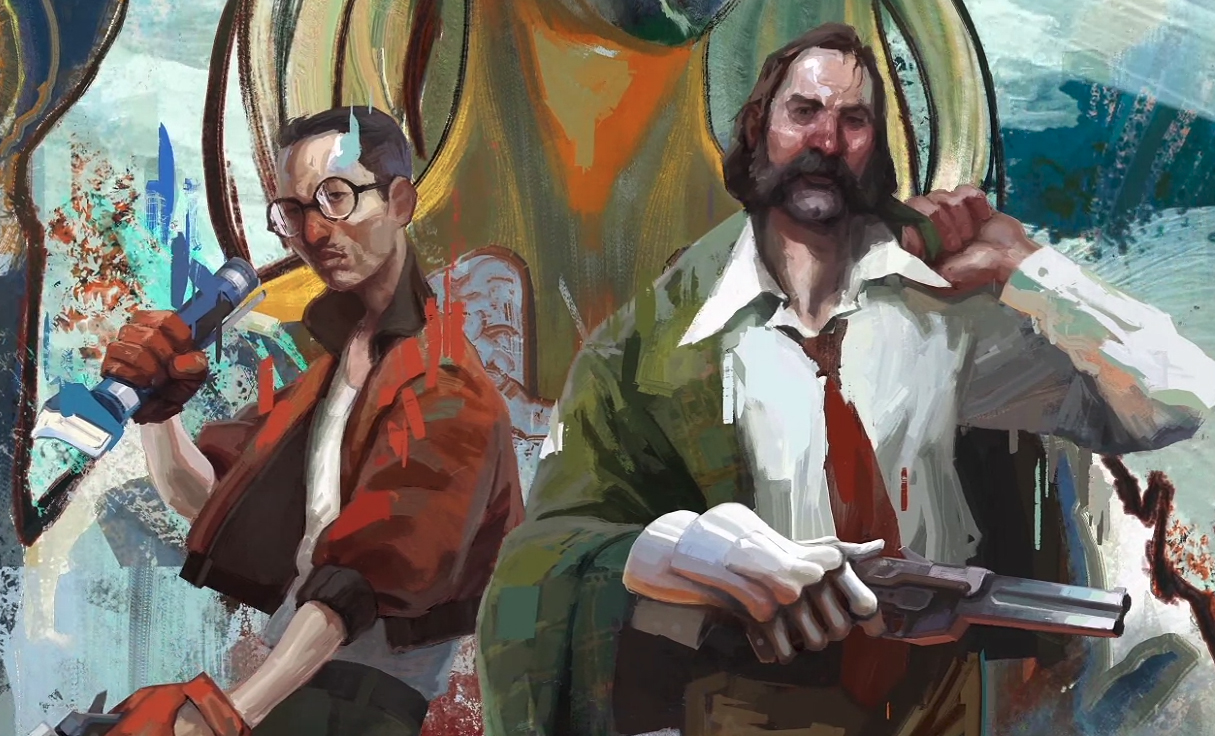
Role-playing games inherently involve experimenting with alternate personalities. But few are as fundamentally about personal identity as Disco Elysium. The detective RPG from Slovakian developer ZA/UM plunges so deeply into your sense of self that your inner thoughts have inner thoughts. Playing as an alcoholic cop who goes on a bender so extreme it wipes his entire memory, you must solve the murder of a man found hanging in a tree while also solving the mystery of who the heck you are.
Many RPGs have your character start out as a blank slate, but in Disco Elysium you are a shattered slate, your mind a million shards. Every character skill relates to a fragment of your disassembled self, and each of those has its own voice. Your logic skill, for example, will help you solve conundrums. Your electro-chemistry skill, by comparison, will go hog-wild whenever you spy drugs or alcohol, begging you to indulge. It's up to you which parts of your mind you listen to, and what kind of detective forms from that.
Disco Elysium combines this with a literary approach to narrative design that is both hilarious and achingly astute in its perception of its own dilapidated world. It's an expressly political affair. The game's central murder takes place in a city district living in the shadow of a failed communist revolution, the bones slowly being picked clean by corrupt unions and external capitalist interests. These politics play into your character too, with the game letting you affect various political stances and explore their ideologies, contradictions, and consequences.
It's a truly singular experience, although that description has gained more literal significance lately. The game's legacy has been marred by a split within ZA/UM between its creative director and the company's own directors and investors. That story is a messy one, but it ends with the sad truth that we're unlikely to see a sequel.
That makes Disco Elysium all the more unique, a reminder that good RPG design is about the paths you give a player to follow, not the amount of real-estate available to explore. If more recent events are anything to go by, it's an idea that might be catching on again.
The Covid-19 pandemic (January 2020)

Covid-19 affected virtually every individual and organisation on the planet, and the games industry was no different. But the effect of the virus and the ensuing lockdowns to help protect people from it was unusual in the case of games. Covid-19 caused serious disruption to game development schedules as studios adjusted to working from home. But it also caused a massive spike in sales of games and hardware, due to the millions of additional people passing time during lockdown by playing games.
The consequences of all this are still playing out today. The delays Covid caused meant fewer games being launched in the following two years, while 2023 has seen a bumper release calendar as all those delayed games finally reached completion. On the other hand, the massive spike in gaming revenue has also flattened, resulting in widespread layoffs as companies looking to exploit short term gains during the pandemic now seek to downsize their operations to maximise their profit. It's a sharp reminder that, while business has always partly driven gaming as an artform, for some, it is exclusively a money making machine.
One positive that emerged from the pandemic, however, is an increased awareness of the risk of exploitation on the part of game developers. The post-pandemic years have seen numerous unions created at developers like Blizzard and Raven Software, with the aim of protecting workers' rights. One of the less expected effects of the pandemic was to change how people view their relationship with work, and the game industry is still wrestling with what that means for the future.
Valheim (February 2021)
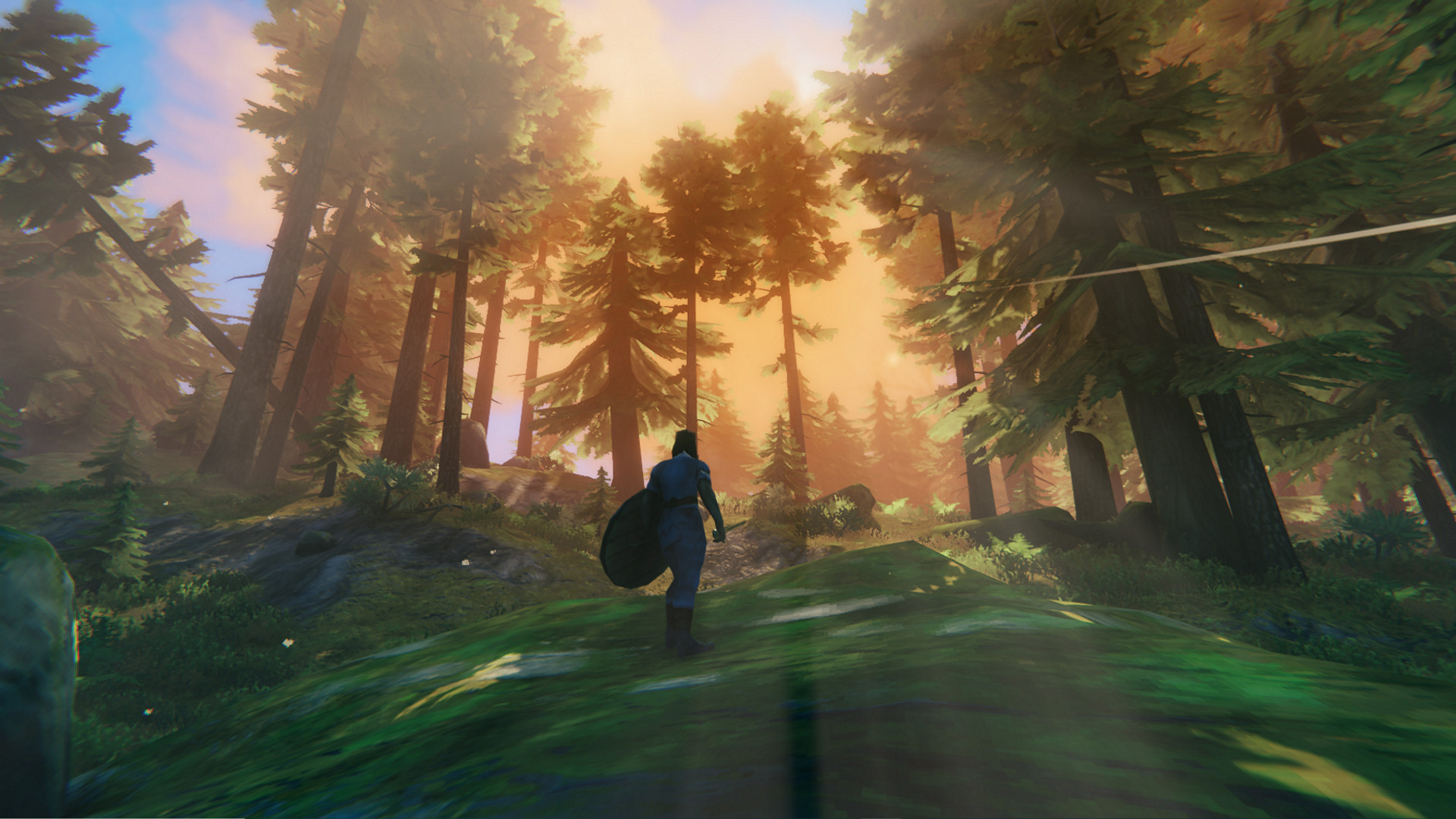
Any game that brings together the building and survival systems of Minecraft with the exploration and combat of Dark Souls always had a reasonable shot at being popular, but nobody expected Iron Gate's procedural Viking simulator to become the phenomenon that it has. As well as being the perfect capstone to the design ideas that drove the 2010s, Valheim's popularity derives from being such an excellent hangout space. Its atmospheric Viking world is highly rewarding to explore with other players, and while the game bills itself as a hardcore survival experience, for the most part the only pressure is that which you choose to take on.
Steam Deck (March 2022)
Valve's answer to the Nintendo Switch is a miniature marvel of engineering, a compact yet deceptively powerful handheld that combines the portability of a handheld with the flexibility of a PC.
The success of the Steam Deck was undoubtedly assisted by launching at an opportune moment. High-end games were scarce in 2022, making it an ideal time to reunite with old favourites and catch up with the hottest indie games. The Steam Deck also happened to release alongside the perfect gaming companion, Poncle's simple yet enormously compulsive Vampire Survivors. This year's calendar of wall-to-wall blockbusters has been less well suited to the Steam Deck, but it's still a fantastic bit of hardware, and a tinkerer's delight.
Baldur's Gate 3 (August 2023)
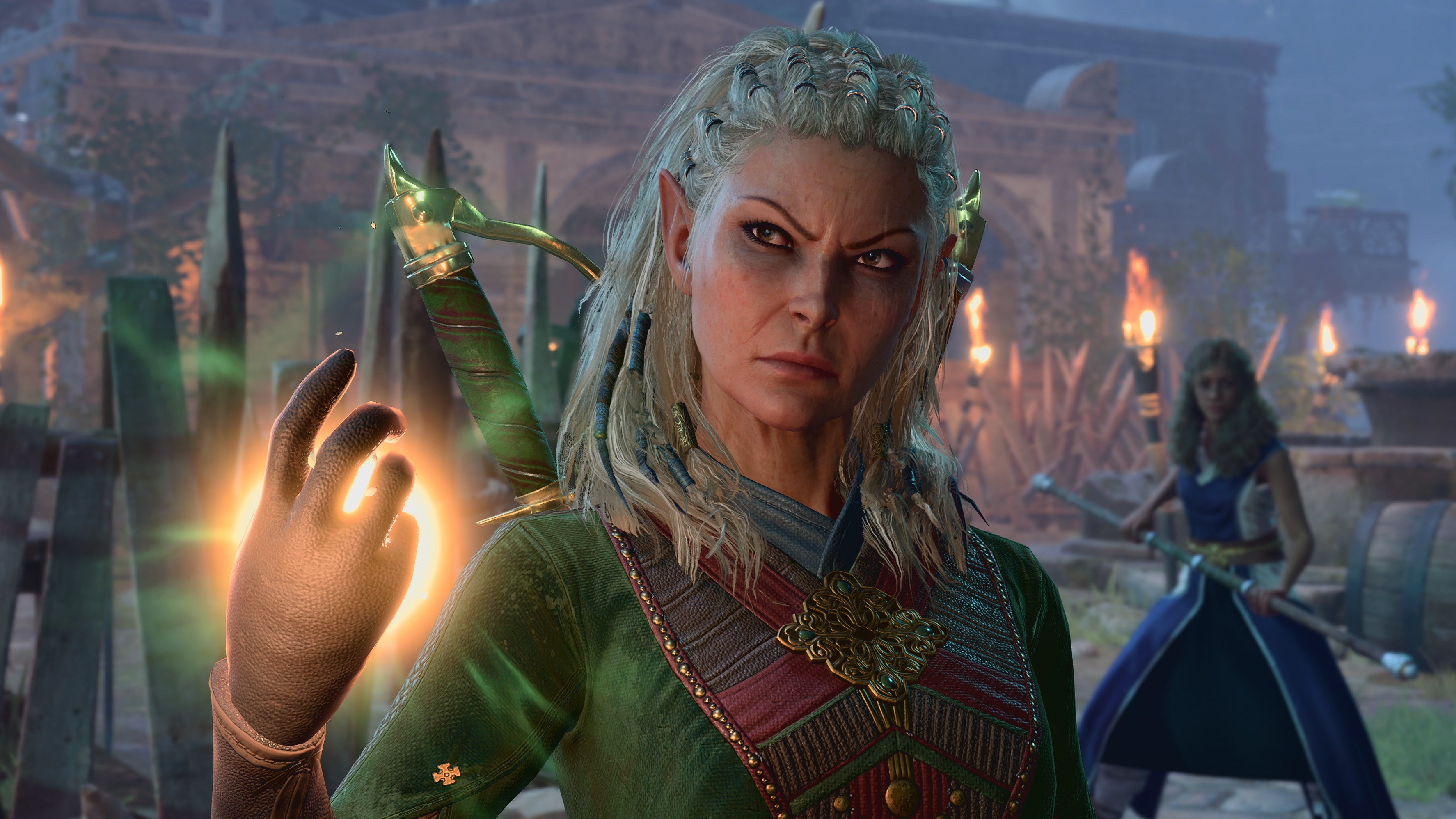
Receiving a whopping score of 97 from PC Gamer, Baldur's Gate 3 epitomises how the PC's most traditional genres can still surprise after 30 years. This magnificent CRPG blends world-class writing, acting, and storytelling with challenging turn-based combat that brilliantly adapts D&D's toolset. Not only is the game's central narrative preposterously flexible, the world is also highly responsive to your actions.
A stone cold all-timer, it's hard to know yet what impact Baldur's Gate 3 will have. But you can guarantee it's under the microscope of every major game developer.
Cyberpunk 2077 2.0 (September 2023)
CD Projekt has long held a reputation for improving its games post-release, but Cyberpunk seemed like an insurmountable task. Alongside a list of bugs and performance issues were more fundamental problems, like underwhelming progression and a gorgeous, but lifeless, city.
Yet CD Projekt was true to its rep, and while it took three years and a countless number of eddies, the studio really did fix Cyberpunk. It's now as entertaining mechanically as it is narratively, while the world feels more alive thanks to better crowds and a proper police system. The Phantom Liberty expansion provides further enhancements, alongside a new story that's a superb complement to the original.
Rick has been fascinated by PC gaming since he was seven years old, when he used to sneak into his dad's home office for covert sessions of Doom. He grew up on a diet of similarly unsuitable games, with favourites including Quake, Thief, Half-Life and Deus Ex. Between 2013 and 2022, Rick was games editor of Custom PC magazine and associated website bit-tech.net. But he's always kept one foot in freelance games journalism, writing for publications like Edge, Eurogamer, the Guardian and, naturally, PC Gamer. While he'll play anything that can be controlled with a keyboard and mouse, he has a particular passion for first-person shooters and immersive sims.

